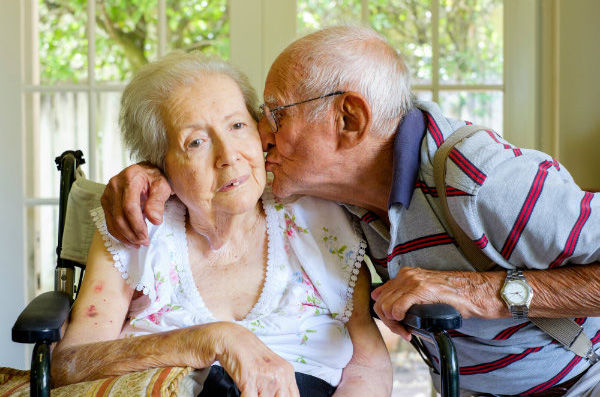Editor's Note: This post was originally published on The Huffington Post, where Dr. Terry Fulmer writes regularly on issues of importance to improving the care of older adults.
Helping Families Find Hidden Treasure – Making Dementia Caregiving Support Programs More Available
For the millions of families caring for someone with dementia, finding the support they need is like digging for buried treasure. Family caregiver support programs exist that are worth their weight in gold, but they are hard to find without a guide who has the right map.
This is because there are dozens of support programs for family caregivers of people with dementia that have been shown to work, but they are not widely used by the health care and social service organizations that have the most contact with family caregivers. At least 50 programs have been studied by researchers over the last few decades showing positive outcomes for families and their relatives. These proven programs are ready for wider use, but remain largely inaccessible to families desperately in need.
Why? One key problem is that the agencies and organizations serving family caregivers don’t have an easy way to choose between the numerous available programs they might implement nor do they understand the outcomes they might achieve. They can’t tell what will work for their organization and the population they serve, how much it will cost, or what kind of staff and training they will need. As a result, they don’t offer these support programs that could greatly benefit caregivers.
Help is on the way. The John A. Hartford Foundation recently funded a 30-month project that will produce a comprehensive website for medical care and social service organizations that will allow them to compare dementia caregiving programs in order to select the right services for the families they support.
Think of it as a map to help guide organizations to the buried treasure of proven dementia support programs that will work for them. The resource will include information on key findings from research on each program, and practical information from real-world experiences of organizations and providers who are using these programs successfully.
The project to develop this web resource is a collaboration between the Benjamin Rose Institute on Aging and the Family Caregiver Alliance. These two outstanding organizations have an excellent track record of serving family caregivers through research, programming, and advocacy initiatives over the past 15 years.
This is just one effort to increase access to valuable support programs for caregivers of older adults with dementia. We also desperately need:
-
policies that better support payment for these services;
-
more practical guidance on how to effectively implement the programs we currently have; and
-
we need to add to our treasure trove by expanding and testing programs among different populations, in different regions, and in a range of cultural contexts.
-
For an excellent overview of dementia caregiving, visit the Family Caregiver Alliance National Center on Caregiving.
-
The Alzheimer’s and Dementia Caregiving Center offered by the Alzheimer’s Association has a wide range of offerings, including what to expect at each stage of the disease, suggestions for activities and difficult behaviors, and a caregiver’s forum and message board for questions and support.
-
The VA Caregivers Support Program offers a series of short videos about dementia in-home care, including home safety, legal matters, dealing with problem behaviors and learning relaxation techniques (scroll to end of page for videos).
Read Dr. Fulmer's previous posts on The Huffington Post:
Home-Based Primary Care: Making Health Systems More Age-Friendly
Who’s Managing Your Hip Fracture?
How To Build The ‘Village’ You Need As A Caregiver
Opioids And Older Adults: Addressing Both The Epidemic And Undertreated Pain
Elder Mistreatment: Are You Safe At Home?

